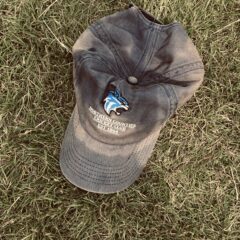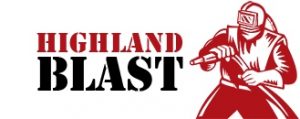History (Source: The North’s Cricket Century by Patrick W. Scott)
Northern Counties Cricket Club was established in 1865 – a year after a group called “The Northern Meeting” had built the park – and has survived the many years due to its ability to adapt to the changing environment.
Although organised cricket is reported as having been played in Inverness as early as the 1840s, the first club in the Highland capital, Northern Counties Cricket Club did not form until 26 August 1864. The club began at a meeting at the Inverness Town House presided over by the episcopal Bishop of Moray and Ross, the Rt. Rev. Robert Eden**. The club’s first ever match took place the following summer against Nairn.
Northern Counties were founder members of the North of Scotland Cricket Association in 1893 and promptly won the league for the first three years before claiming it for a fourth time in 1897. The league title won in 2004 was Counties’ 20th (including three joint titles). Only Huntly Cricket Club has won the title on more occasions. Northern Counties have also won the Knock Out cup 15 times, including a run of five trophies from 1947-51. In 1950 Counties completed a unique clean sweep, winning the senior league, the reserve league, the Knock Out cup and the reserve Knock Out cup.
The club plays its home matches at the Northern Meeting Park in Inverness. The ground is situated in the heart of the city’s cultural quarter, flanked by St. Andrew’s Cathedral, the Eden Court Theatre and the Highland Council’s Glenurquhart Road headquarters building. The Meeting Park has played host to a number of touring sides over the years including Dr W G Grace’s XI, an all Indian XI (which included three maharajas), Leicestershire, Kent, Learie Constantine’s XI and an Australian Forces XI.
The ground has a perimeter wall on all sides, painted white at one end to act as a sight screen. A variety of tall trees punctuate the boundary and, although in need of refurbishment, the grandstand at the Ardross Street end can still hold up to 800 spectators. Indeed, a 1911 league decider between Elgin and Nairn at the ‘neutral’ Meeting Park attracted well over 3,000 spectators and a special train was laid on to bring supporters along the coast to attend the match. Elgin scored 227-8 to win by 59 runs.
Arguably Northern Counties’ most celebrated player is John R. Braid who, whilst playing for a North of Scotland XI against the touring Australians in 1934, took the wicket of the legendary Don Bradman for only 2 runs. Although they won the match comfortably, Australia were bowled out for 134 runs, their second lowest total of their British tour – the lowest score being 118 in the second test against England.

Sir Donald Bradman
The most successful batsman in the history of the club is W.J.Dishington who won the NoSCA batting averages 8 times between 1977 and 1989. His 1989 batting average of 113.75 remains a record for the Association. The club’s highest ever score is 170 by Angus Gunn in 1990.
The outfield is kept by the Highland Council, but the wicket is prepared by Mike Evans (2nd XI captain), who puts endless hours into preparing the track.
Today, “Counties” is a warm. friendly club who welcomes new members of all shapes, sizes and abilities.
Our diversity is our strength and is what unites us on and off the pitch. The club competes in the North of Scotland Cricket Association competitions.
Situated in the shadow of Inverness Cathedral and a cricket balls throw from the River Ness’ West bank, “Counties” home ground – The Northern Meeting Park – is an historic gem within an easy stroll, along the river, of the city centre. It’s a great place for a picnic (weather permitting) or just a sit and relax in the 800 seater stand.
We love where we play and think you will too.
Call in on a match day or training night. We’d be happy to show you around.

** Below is the transcript of the original newspaper report covering that formation meeting in 1864……
NORTHERN COUNTIES CRICKET CLUB.
A numerously attended meeting was held in the Town Hall here on Friday afternoon, for the purpose of taking the necessary steps for the formation of a cricket club which should embrace tho whole of the Northern Counties.
The Right Her. Bishop Eden presided on the occasion, and there were also present—The Master of Lovat; Sir Kenneth S. Mackenzie of Gairloch, Bart. ; Captain D Baillie, Househill ; F. Walker, Esq. of Foyers; J. B. Baillie of Leys; Lieut. Jones, R.E.; the Rev. H. Hawkins, Hedgefield; Robert A. Eden, Esq. ; W. A. Eden, Esq; C. J. Eden, Esq. ;R. H. Lipscomb, Esq, Bellevue; J.K. Greig. Esq., banker; H. D. Penrose, Esq., Castlehill: L. A. lnkson, Esq, solicitor; Charles Innes, Esq. solicitor; John Mackintosh, Esq., Inverness; Dr Campbell, do. ; M. J. P. Burns, do.; Mr W. Mitchell, do., &c.
The Primus, in opening the business of the meeting, entered into explanation the reasons which had induced him to appear as Chairman of the meeting, which he assured them he had the greatest pleasure doing. in the first place, he had been a lover of cricket from childhood, and advanced in age he still loved it, and took care that as soon as his sons were about as tall as cricket bat they should have one put into their hands. (Hear, Hear.)
As a clergyman he had found immense advantages resulting from the game of cricket, considered as a help to higher things. There was in it not only what everybody ought have, vis., recreation and amusement, but it was calculated to draw people away from lower amusements, the onlv tendency of which was to degrade instead of to elevate. (Hear, hear.)
Cricket was a promoter of temperance, although would not pretend to say that all cricketers were total abstainers. No drunkard, however, would ever make good cricketer. (Applause.)
The game of cricket was also a great improver of the morals of the people, and in connection with this point he would say that he had often been grieved to see so many young men standing at the corners of our streets doing absolutely nothing, when, had there been any means of obtaining recreation, many them might have been induced avail themselves of it.
Besides preventing a great amount of vice, cricket tended to draw together all classes of society. They did not wish to ascertain what rank any particular individual occupied. All that they wished to know was whether or not he was a good cricketer, and, if he was the latter, it mattered not whether he was gentle or simple. (Applause.)
Their I matches gave rise to many very pleasant social meetings and a great amount of amusement, not only for players but also for tho spectators ; and he maintained that if they could do anything to interest and amuse their friends and neighbours it was their duty to it.
And again cricket was unlike most other games in not affording much ground for betting, and in admitting of no point in connection with which there could be any bickering or quarrelling. The game was so uncertain that scarcely any person would found bet upon it, and the decisions of the umpire, be they right or wrong, in estimation others, were always final. (Applause.)
In conclusion, tho Bishop urged upon the meeting the necessity for doing well whatever they intended to do, and impressed upon them the desirability of subscribing as much they could towards the funds, in order that a proper ground, a good tent, and every other necessary might procured.
His lordship also suggested that they should take into consideration the engagement of professional for three months each year. (Hear, hear.) A list of those who had intimated their willingness to become members already numbered upwards of twenty, and Lord Saltoun, who was unable attend the meeting, had said that would join. (Applause.)
A number of resolutions were then briefly put the meeting and adopted unanimously. The first, moved by Capt. Baillie, Househill. and seconded Mr Walker of Foyers, established the Club, under the name of “The Northern Counties Cricket Club. By the second, moved by Mr Baillie of Leys, and seconded Mr Lipscomb. Balnagown. the rules of the Mary-le-bone club were adopted. The third resolution, moved Mr Innes, solicitor, seconded Mr Greig. nominated a committee intended to operate in this and the neighbouring counties. It included the following names . Master of Lovat; the Hon. Colonel Fraser ; the Bishop of Moray and Ross ; Mr White of Monar; Mr Mackintosh of Raigmore Mr Baillie of Leys; Mr Inkson, solicitor; Messrs R. A. and W. A. Eden; Mr Greig, banker; J. M. Mackintosh, wine-merchant; Major Wardlaw ; Mr Lipscomb; Brodie of Brodie ; Col. Baillie ; and Capt. D. Baillie—with power add to their number. Captain D. Baillie to be their Convenor. Mr J. M. Mackintosh and Mr lnnes were respectively Hon. Secretary and Treasurer.
A vote of thanks to the Bishop concluded the proceedings.
Thursday 25th August 1864

